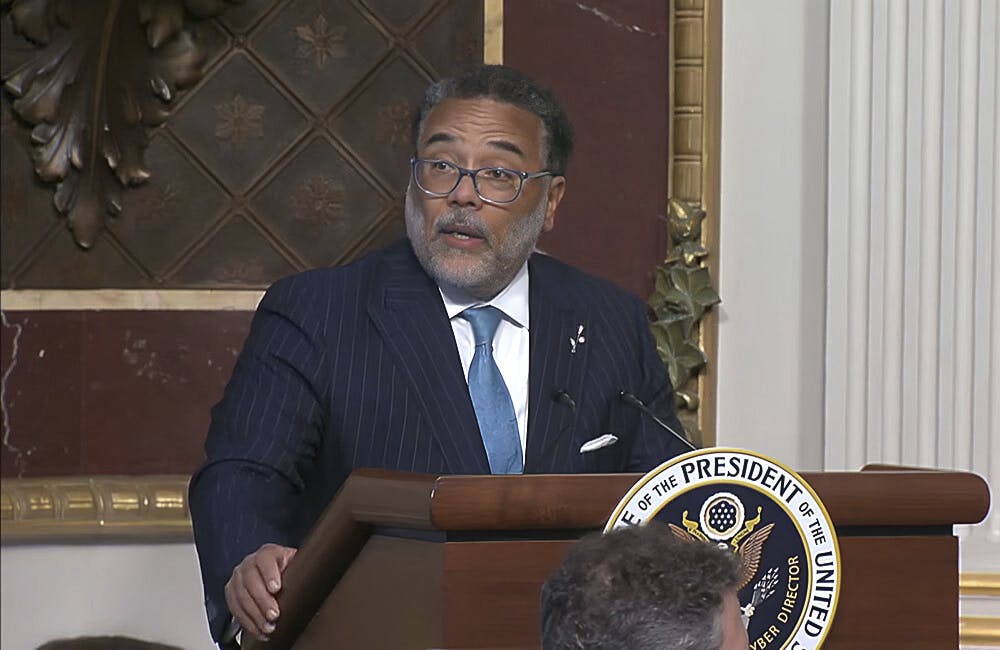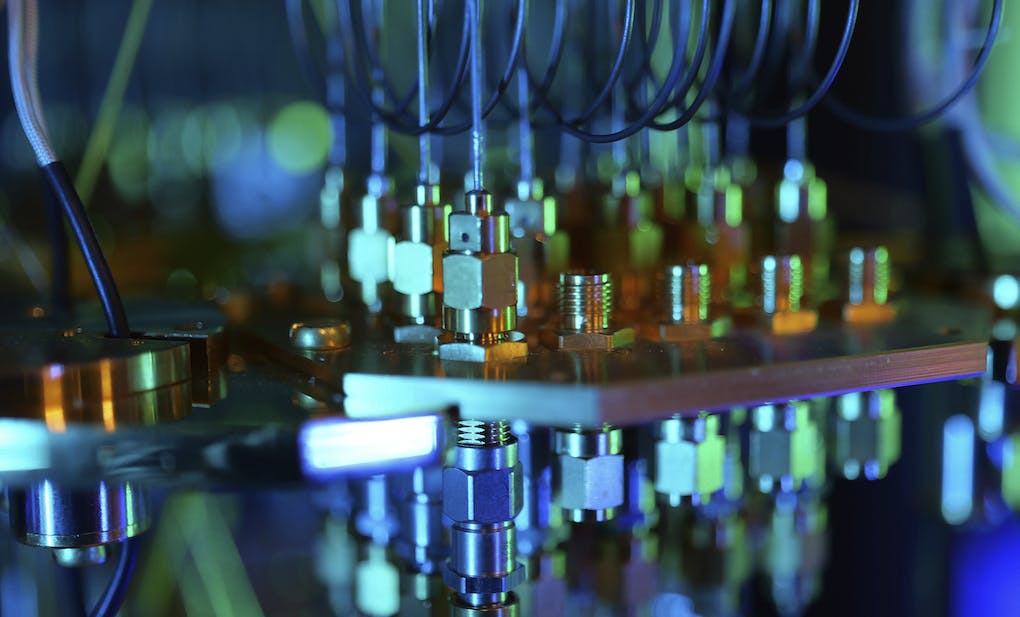Navy Must Improve ‘Foundation’ to Meet Global Demands, CNO Says
Chief of Naval Operations Adm. Lisa Franchetti cited warfighters, warfighting and foundation as her key priorities.

SAN DIEGO – The U.S. Navy’s combat projection extends across the globe. With so many fronts and flashpoints, it is essential that it must be ready to respond anywhere at a moment’s notice, Adm. Lisa Franchetti, Navy chief of naval operations, said Tuesday.
Franchetti, who delivered the opening keynote at AFCEA WEST 2024, said that warfighters, warfighting and foundation – her three key priorities – are essential to modernizing the Navy to engage quickly with flashpoints worldwide from the Western Pacific to the Baltic.
She said that warfighters must be ready to deliver “decisive combat power” globally and that efforts need to be made to enhance the Navy’s combat strength. According to Franchetti, this can be achieved by “investing in our infrastructure, building trust, aligning resources and, quite simply, by always being ready.”
“We must act with urgency from cyber weapons to unmanned platforms, directed energy, artificial intelligence and hypersonic missiles, and much more. We’re seeing technological breakthroughs that are redefining conflict,” Franchetti said. “The Navy recognizes that speed matters, that the pace at which we procure, modernize, maintain, and sustain our platforms matters, as does the pace at which we rapidly integrate and adopt new technologies.”
Similar to earlier U.S. Navy revolutions of the 1930s and 1970s, Franchetti said the Navy must reshape itself to meet the demands of this “decisive decade.” To adapt, she said, the Navy must adopt AI/ML technology to “maintain, repair and deliver our platforms on contract and in the shipyards more quickly, cheaply and effectively.”
Additionally, Franchetti said, the Navy needs to explore and integrate disruptive and emerging tech to include unmanned systems to “[extend] and [bolster] the reach, the depth and the lethality of our conventionally manned fleet.”
Through Project Overmatch, the Navy’s clandestine contribution to the DOD’s Combined Joint All-Domain Command and Control initiative, Franchetti said that the Navy must “effectively support distributed maritime operations, and to achieve decision superiority and lethality at machine speed.” Project Overmatch is providing the Navy with critical pathways to connect and share information, she said.
Franchetti added that the Navy must “build strong warfighting teams, [recruit] and [retain] talent from across the rich fabric of America and [provide] them with world class education and training.” The Navy needs more personnel, according to Franchetti, who can use unmanned systems, innovate within those systems and work autonomously while experimenting with emerging and disruptive technologies.
While the Navy is in need of a larger force and better technology, Franchetti also said that improvements are needed in boosting the quality of life of those who serve.
“We’re taking a learning approach to put together a cross functional team that really looks across the whole spectrum of the sailor’s life, work life, everything they need to do,” Franchetti said. “Using the really challenging industrial area around Newport News shipbuilding as our first place where we’re looking hard at solving some of these challenges. It’s a little bit of a laboratory.”
Newport News’ position as a laboratory has enabled the Navy to improve aspects of military life like the barracks, where new furnishings and free WiFi are being developed. Allowing sailors to cook food within the barracks, building more parking and offering more frequent shuttle service are small improvements that make a big difference in bettering base life, Franchetti said.
Sailor mental and medical health is also being considered, with more providers being offered to sailors, more Armed Forces Wellness Centers being set up and encouraging Naval Officers to reach out more frequently to check on sailors’ mental health.
“[Sailors] people can actually take care of body, mind, and spirit all the time,” Franchetti said. “And help stay left of some of the challenges that they face.”
This is a carousel with manually rotating slides. Use Next and Previous buttons to navigate or jump to a slide with the slide dots
-

Cyber Strategy 2.0 Stresses Critical Infrastructure Protections
A year after its release, the second cybersecurity strategy and implementation plan focus on new initiatives for critical infrastructure.
5m read -

White House Might Remove Degrees From Federal Cyber, IT Jobs
White House and federal leaders are moving toward skills-based hiring practices to fill critical roles in IT and cybersecurity.
5m read -

IRS Tax Filing Pilot Part of Digital-First Customer Experience Plan
Many taxpayers increasingly expect flexible, easy and self-directed digital interactions, agency leaders said.
5m read -

Federal Agencies Make the Case for Quantum
Amid development of emerging technologies like AI and machine learning, leaders see promise in quantum computing.
6m read








